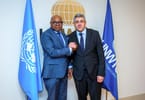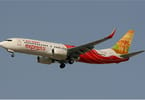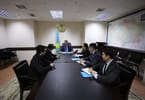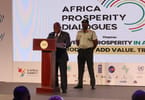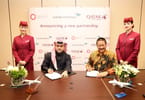SYDNEY (eTN) – On Saturday, December 6, 90 senior tourism industry professionals gathered at the imposing International College of Management (formerly the Cardinal’s Palace) overlooking Sydney’s Manly Beach to spend a summer day examining tourism’s response to the global economic challenges. The Tourism Resilience Forum was warmly supported by the United Nations World Tourism Organization (UNWTO) assistant secretary general Geoffrey Lipman and was addressed by Alexander Rayner, who spoke on behalf of UNWTO. In fact the title of the forum was deliberately designed to reflect UNWTO’s major objective of promoting tourism industry resilience.
Although there have been a number of meetings held by tourism professionals to discuss the issues worldwide, the forum in Sydney was unique because it involved tourism academics, media experts, marketing specialists and industry leaders representing every sector of the Australian tourism industry. The concept of the forum was to analyze the impact of current economic volatility on one hand and to develop a road map for all sectors of the tourism industry to survive and
overcome the threat of economic negativity.
Distinguished tourism academics who addressed the forum included world renowned Larry Dwyer Qantas, professor of tourism economics at the University of NSW; John Jenkins, head of tourism at Southern Cross University; tourism economist and advisor to the World Travel & Tourism Council Ray Spurr of University of NSW; and Ravi Ravinder, senior lecturer of tourism at the University of Technology Sydney who examined the strategic management implications of tourism businesses managing challenging times.
Industry presentations were made by Dr. Tony Webber, chief economist Qantas, revealed fascinating economic data that Qantas uses in determining its preferred destinations and best yielding routes; Adrian Caruso, renowned tourism management coach, discussed successful business practices; and Mike D Silva, president of the New York-based Marketing Agencies Association Worldwide, outlined marketing strategies that would maximize “bang for buck.”
Also present was Pacific Asia’s Travel Association’s Australian-based regional director pacific Chris Flynn. He presented “Project Pheonix” as an example of world’s best practice in tourism recovery marketing. The author examined crisis recovery techniques and strategies.
The lively panel session included a leading travel agent, a wholesale operator, a leading hotelier, a cruise specialists, airlines, tourism trainers and a travel recruitment expert, as well as Sharon Hannaford (chair of the Association of National Tourist Offices, Tourism NSW, exhibitions), Peter Snith (general manager of Australia of Zuji) and two media specialists–Barry Matheson (former producer of the popular Australian TV travel show The Great Outdoors) and Mark Sheehan (the media chair of Discover America).
At the conclusion of the talks and the panel session the delegates divided into groups reflecting their specific segment of the industry and developed a plan of action to manage the impact of economic negativity.
The atmosphere of the forum was upbeat despite acknowledging the very real challenges, both perceptual and actual, which the economic downturn has imposed on the Australian and global travel industry. There was a broad consensus that from the Australian perspective domestic and short-haul international tourism may actually benefit considerably from economic belt tightening but businesses specializing in longer haul international travel would need to deliver a clear message of offering value for money if they expect to maintain viability and market share over the coming year. It was clear that the industry’s primary challenge was to talk up tourism and position tourism not as a discretionary luxury expense but as a necessary investment for a rounded life.
WHAT TO TAKE AWAY FROM THIS ARTICLE:
- The lively panel session included a leading travel agent, a wholesale operator, a leading hotelier, a cruise specialists, airlines, tourism trainers and a travel recruitment expert, as well as Sharon Hannaford (chair of the Association of National Tourist Offices, Tourism NSW, exhibitions), Peter Snith (general manager of Australia of Zuji) and two media specialists–Barry Matheson (former producer of the popular Australian TV travel show The Great Outdoors) and Mark Sheehan (the media chair of Discover America).
- The concept of the forum was to analyze the impact of current economic volatility on one hand and to develop a road map for all sectors of the tourism industry to survive and.
- At the conclusion of the talks and the panel session the delegates divided into groups reflecting their specific segment of the industry and developed a plan of action to manage the impact of economic negativity.







